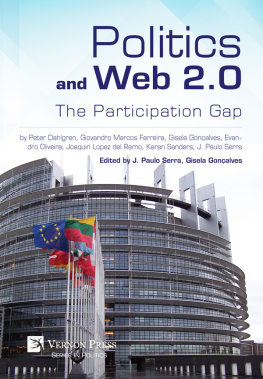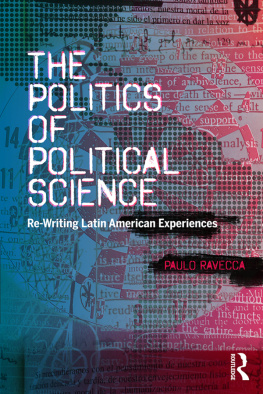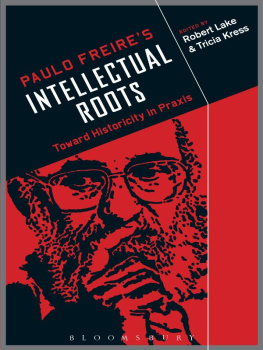J. Paulo Serra - Politics and Web 2.0: The Participation Gap
Here you can read online J. Paulo Serra - Politics and Web 2.0: The Participation Gap full text of the book (entire story) in english for free. Download pdf and epub, get meaning, cover and reviews about this ebook. year: 2016, publisher: Vernon Art & Science, Inc., genre: Politics. Description of the work, (preface) as well as reviews are available. Best literature library LitArk.com created for fans of good reading and offers a wide selection of genres:
Romance novel
Science fiction
Adventure
Detective
Science
History
Home and family
Prose
Art
Politics
Computer
Non-fiction
Religion
Business
Children
Humor
Choose a favorite category and find really read worthwhile books. Enjoy immersion in the world of imagination, feel the emotions of the characters or learn something new for yourself, make an fascinating discovery.
- Book:Politics and Web 2.0: The Participation Gap
- Author:
- Publisher:Vernon Art & Science, Inc.
- Genre:
- Year:2016
- Rating:5 / 5
- Favourites:Add to favourites
- Your mark:
- 100
- 1
- 2
- 3
- 4
- 5
Politics and Web 2.0: The Participation Gap: summary, description and annotation
We offer to read an annotation, description, summary or preface (depends on what the author of the book "Politics and Web 2.0: The Participation Gap" wrote himself). If you haven't found the necessary information about the book — write in the comments, we will try to find it.
Politics and Web 2.0: The Participation Gap — read online for free the complete book (whole text) full work
Below is the text of the book, divided by pages. System saving the place of the last page read, allows you to conveniently read the book "Politics and Web 2.0: The Participation Gap" online for free, without having to search again every time where you left off. Put a bookmark, and you can go to the page where you finished reading at any time.
Font size:
Interval:
Bookmark:
6.1
6.2
6.3
6.4
6.5
3.2
3.3
6.1
6.2
6.3
6.4
6.5
6.6
6.7
7.1
7.2
7.3
7.4
7.5
7.6
7.7
7.8
7.9
7.10
7.11
7.12
7.13
7.14
7.15
7.16
7.17
7.18
7.19
7.20
7.21
7.22
7.23
7.24
7.25
7.26
The starting point of this book is the paradoxical state of the artregarding political communications and thus one-way andtop-down communication strategies still prevail. In other words, it is business asusual.
Several issues arise from this context. With this book, we aim to keep the debatearound the party-citizen participation mismatch alive. Ultimately, we consider itimportant to inquire as to whether Web 2.0 could help citizens political participationor if a new research stream should be identified. The chapters of this book respond tothat challenge and provide valuable explorations of how political parties face thedigital online apparatus regarding citizen participation at micro and macro level.The micro level involves research on an individual level, mainly focusingon the practices of individuals, while the macro level is more aimed at ananalysis of broader, inter-societal systems. Within the 6 chapters gatheredin this book, both levels of analysis are presented and intertwined, whichleads to an overarching and thought-provoking discussion about the politicalparticipation gap, its causes and consequences for political communicationand democratic politics, as well as new forms of political participation incontemporaneity.
The first chapter in the volume critically reflects on the history of communicationstudies, often focused on the effects of the media, to demonstrate how somecharacteristics of Web 2.0 provide elements for a communication theory that is ableto provide a framework for social changes and the implications of communicationprocesses in social semiosis, i.e. the semiosis of mediatization. In In search of a return to communication (studies) as a factor of social change: Web 2.0 and political participation , Giovandro Marcos Ferreira, from the Federal University of Bahia,Brazil, is concerned with demonstrating the importance of the community, exercisingcitizenship on and over the internet, and its links with other institutions that arepresent in the public space. In particular, the author reflects on how the newwider public space can include what are known as extimate operations a play on words that means externalizing the intimate. In other words,it is a space often frequented by emotion, intimacy and passion in publicdiscussions.
Joaqun Lopez del Ramo, from the Universidad Rey Juan Carlos, Spain, presents Descriptive indicators of photojournalistic treatment of political leaders from the standpoint of content analysis . With this research, he uses the contentanalysis methodology to obtain in-depth, exhaustive and relevant data on howphotojournalism deals with political leaders. Moreover, he underlines howstereotypes, ideological bias and an excess or abuse of clichs, especially duringelectoral campaigns, may explain the distance between the public and politicians, bybroadcasting the impression of a prefabricated image, hollow rhetoric or evenfalseness.
The Spanish political party Podemos , new on the European scene, is the focus of thechapter authored by Karen Sanders, from CEU San Pablo University and the IESEBusiness School, Spain. In The emergence of Spain s Podemos (We Can) Party: Challenges for political communication practice and study the author discusses how Podemos and other political groups and the popular distrust of mainstreampoliticians and political parties have placed the phenomenon of political populismfirmly on the Spanish political and public agenda. Moreover, the author discusseshow Podemos highly professional approach to political communication, using bothtraditional and social media to great effect, has at the same time sought todemocratize its communication. This leads to an interesting debate about theso-called false dichotomy, according to which professional campaigns are seen assomehow incompatible with democratic communication that empowers thecitizen.
The concept of cosmopolitanism and its importance for understanding the moderntransnational world is at the core of the chapter by Peter Dahlgren, from LundUniversity, Sweden, who critically analyses its utility in helping to understand theconditions for political activism in the context of a global civil society. The essay Cosmopolitanism , media and global civil society : From moral to political agency begins with reflections on global activism and stresses that much of theliterature on cosmopolitanism comprises a normative discourse, asserting amoral obligation to global Others. The author then attempts to make thetransition from moral to political engagement, and argues for the notion of civiccosmopolitanism.
Evandro Oliveira, from Leipzig University and the University of Minho, together withGisela Gonalves, from the University of Beira Interior, centre their research on thePortuguese Parliaments online communication to reflect on how social media is beingused to foster interaction and dialogue between citizens and Members ofParliament. In Talk to me and I will talk for you , the authors anchortheir research in the sociological context of social media communicationand its relationship with online political communication and relationshipmanagement studies from a political public relations perspective. The mainfindings obtained with a multimethod approach suggest that the level ofprofessionalization of MPs online communication is low and that the internetsdialogical promise has not yet materialized in the Portuguese parliamentaryrealm.
Completing the volume, New media and politics: citizens participation in the websites of Portuguese political parties: main results , is a chapter in which J.Paulo Serra and Gisela Gonalves, from the University of Beira Interior,Portugal, present the main findings and discuss the main results obtainedthroughout the various stages of the three-year implementation of the New media and politics: citizen participation in the websites of Portuguese political parties project. It aimed to answer to the question What is the degree ofcorrespondence between the participation that the websites of the Portuguesepolitical parties allow citizens and citizens expectations about their participation innon-electoral periods?. By using multiple methods of data collection and analysis(content analysis, controlled experiments, semi-structured interviews, web-basedsurveys and focus groups), the authors conclude that there is a degree of totalcorrespondence. However, as they also highlight, this affirmative answerhides a doubly negative one: i) the political parties websites do not providecitizens with real participation, but only a simulation of participation, withpersuasive and propagandistic objectives; ii) citizens do not expect the politicalparties websites to allow them more participation than they already do,since what citizens mainly want from the websites is information about theparties.
Finally, we hope that this volume achieves our main goal: to enrich the debate andopen new avenues in the study of political participation and Web 2.0. We thank allthe contributors, reviewers and thoughtful critics without whose contributions thisbook would not have been possible.
Font size:
Interval:
Bookmark:
Similar books «Politics and Web 2.0: The Participation Gap»
Look at similar books to Politics and Web 2.0: The Participation Gap. We have selected literature similar in name and meaning in the hope of providing readers with more options to find new, interesting, not yet read works.
Discussion, reviews of the book Politics and Web 2.0: The Participation Gap and just readers' own opinions. Leave your comments, write what you think about the work, its meaning or the main characters. Specify what exactly you liked and what you didn't like, and why you think so.












